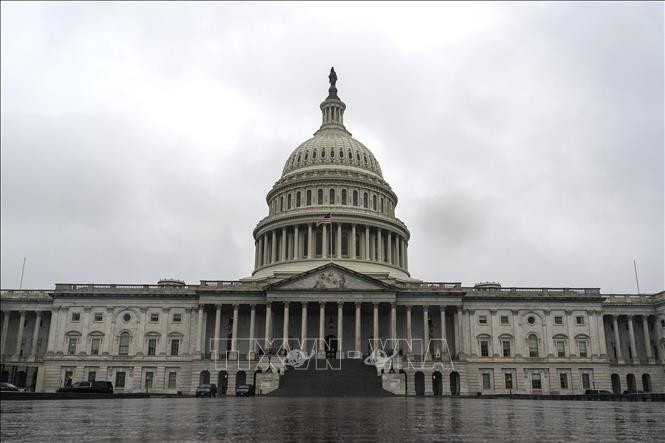On June 2 (Vietnam time), the US Senate passed the debt ceiling bill after the bill was passed by the House of Representatives late on June 1. The US has avoided default for the first time in history.

The US Capitol building in Washington, DC.
According to CNBC, after being passed in both the House and Senate, this bill will be submitted to President Joe Biden.
Mr. Biden is expected to sign it into law on June 2 (US time), just three days before the US is at risk of defaulting on its debt for the first time in history.
The debt ceiling bill passed the Senate with enough votes from Democrats and Republicans to clear the 60-vote threshold, avoiding a "deadline" situation.
Normally, the Senate takes days, not hours, to consider and amend bills introduced by the House, so this vote on the debt ceiling bill was unusually quick.
Specifically, on the evening of June 1 (US time), the Senate voted to reject 11 proposed amendments to the debt ceiling bill (also known as the Fiscal Responsibility Act) that the House of Representatives had passed, after which the Senate finally voted to pass the bill.
The motivation behind the stepped-up votes is simple: There are just days left before the June 5 deadline to raise or suspend the debt ceiling, or the US will default.
The June 5 deadline was set by US Treasury Secretary Janet Yellen, who said the US government would likely not be able to meet its debt obligations after that date unless Congress voted to increase the debt limit.
The bill was previously passed in the House of Representatives after House Speaker Kevin McCarthy and President Biden reached a preliminary agreement on the debt ceiling on May 27.
The bill passed the House of Representatives in less than 72 hours and was passed on the evening of May 31 (US time) with a majority vote of 314 - 117. This vote ratio surprised the House leaders of both parties as more Democrats in the House voted for the bill than Republicans.
In the Senate, the final vote will also require bipartisan cooperation, but it won't be an easy one either.
Majority Leader Chuck Schumer spent much of the day on June 1 negotiating a deal with a group of Senate Republicans who demanded he commit to supporting additional defense funding before they would agree to move forward with debt ceiling legislation.
The current House debt ceiling bill provides for $886 billion in defense spending for fiscal year 2024, a 3% increase over the previous year. That number rises to $895 billion in 2025, a 1% increase. But Republican Sen. Susan Collins has called that inadequate, arguing that a 1% increase does not keep up with inflation, so it is effectively a reduction in the military budget.
The solution came in the form of a joint statement between Mr Schumer and Senate Minority Leader Mitch McConnell and was read on the Senate floor.
“This debt ceiling agreement does not limit the Senate’s ability to appropriate emergency supplemental funding to ensure our military capabilities… This debt ceiling also does not limit the Senate’s ability to appropriate emergency supplemental funding and respond to various national issues, such as disaster relief, combating the fentanyl crisis, or other important national issues,” Schumer read a statement.
The message is clear: No matter what the bill says, the Senate will continue to spend that excess money to fund what members deem important.
According to News